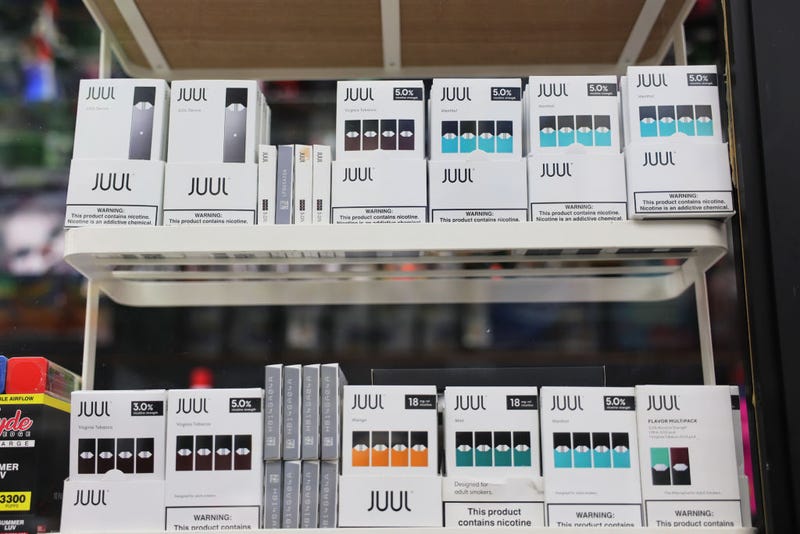
We're learning more Wednesday about the settlement between the State of Minnesota and tobacco companies JUUL and Altria, formerly known as Phillip Morris Companies.
During a press conference on Wednesday, officials shared that the tobacco companies will pay Minnesota $60.5 million.
21-year old Katie Johnson shared her story of becoming addicted to nicotine, using a JUUL vape, and reflected on what they all thought was normal back then.
"I hit my first Vape when I was 13," Johnson explained, saying the fruity flavors were enticing to those at such a young age. "And I think that's the main issue because if vapes were tobacco flavored, this never would have been a youth epidemic."
Ellison says it's the largest settlement per capita in the country, and more than JUUL made between 2015 and 2021.
“So if they got paid by trying to sell deceptive and harmful products to our kids, we got all the money back,” explained the Attorney General.
Ellison says money will be dedicated to a mitigation and prevention now and in the future. Other provisions include calls for more transparency. The third is an agreement that requires JUUL to accurately disclose the nicotine content in its products. Lastly, JUUL and Altria will incur additional costs for the state attorney's fees and litigation concerning the case.
The two tobacco companies were sued for marketing their vaping products in a way that made them attractive to Minnesota teenagers, developing devices and flavors that were appealing to youth.
Back in 1998 the tobacco industry agreed to pay the state and Blue Cross Blue Shield of Minnesota more than $6.5 billion. The settlement then followed months of trial in which the plaintiffs argued that tobacco companies had misled Americans about the dangers of their product.
After that settlement, smoking among young people declined greatly. But then JUUL came into the market and basically erased all those gains.
In a statement JUUL said, “Resolution of issues from the company's past and its historical legal challenges has remained a critical priority for the secure certainty for the future. While we appreciate the court and the jury's time attention and professionalism throughout the trial, we're pleased to have reached a settlement with the state.”
This marks 30 days since Attorney General Keith Ellison announced the settlement following a lawsuit claiming the two companies deceptively marketed e-cigarettes, which became popular among Minnesota's youth.
"As you know, when you file a lawsuit, you set forth your damages," Ellison said. "In this case, they were extensive, but you settle cases so you can get finality."
Ellison added that the amount of the settlement is two to four times larger per person than any other settlement that has been filed in the U.S.
Of the dozen states and hundreds of local governments that had sued JUUL, Minnesota was the first to take them to trial before the companies settled prior to closing arguments.
Ellison first sued JUUL in 2019 for violating Minnesota’s consumer-protection laws, breaching its duty of reasonable care, and creating a public nuisance. That lawsuit was amended in 2020 to include Altria, which spent $12.8 billion to acquire a 35 percent share in JUUL in 2018.
In early March, a court denied JUUL and Altria's motion for a summary judgement, meaning the state's case against them would go to trial. That trial began March 28 with the state resting its case on April 11.


